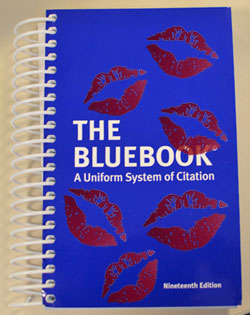 I want to follow up on a previous post I wrote back in October that, in part, discussed open access in scholarship and The Durham Statement. As a reminder, and for those of you who might be new to this party, The Durham Statement, “calls for all law schools to stop publishing their journals in print format and to rely instead on electronic publication coupled with a commitment to keep the electronic versions available in stable, open, digital formats.”
I want to follow up on a previous post I wrote back in October that, in part, discussed open access in scholarship and The Durham Statement. As a reminder, and for those of you who might be new to this party, The Durham Statement, “calls for all law schools to stop publishing their journals in print format and to rely instead on electronic publication coupled with a commitment to keep the electronic versions available in stable, open, digital formats.”
An article was published recently as a part of The University of Georgia Law School Research Paper Series, “Citation Advantage of Open Access Legal Scholarship,” which helps to further promote the proposition that opening up this secondary source material in digital format provides real benefits. Not only does this advance the greater philosophical principals of knowledge as a human right and a public good, but open access can positively impact the work and reputation of law faculty by supporting their professional goals to get their work published and, more specifically, cited, which is now a common benchmark used in tenure review.
 A hat tip to our friend Ed Walters over at FastCase who alerted us to the news that Colorado has proposed adopting a public domain citation format for its Supreme Court and Court of Appeals published opinions. (Yay!) By our count, this means there will now be seventeen states using some form of universal / vendor neutral citation for their court opinions.
A hat tip to our friend Ed Walters over at FastCase who alerted us to the news that Colorado has proposed adopting a public domain citation format for its Supreme Court and Court of Appeals published opinions. (Yay!) By our count, this means there will now be seventeen states using some form of universal / vendor neutral citation for their court opinions.
 As readers of this blog, you probably already know that we at Justia are big fans of universal citation. With that said, I wanted to give you all a heads up that
As readers of this blog, you probably already know that we at Justia are big fans of universal citation. With that said, I wanted to give you all a heads up that 

 Have you heard that
Have you heard that